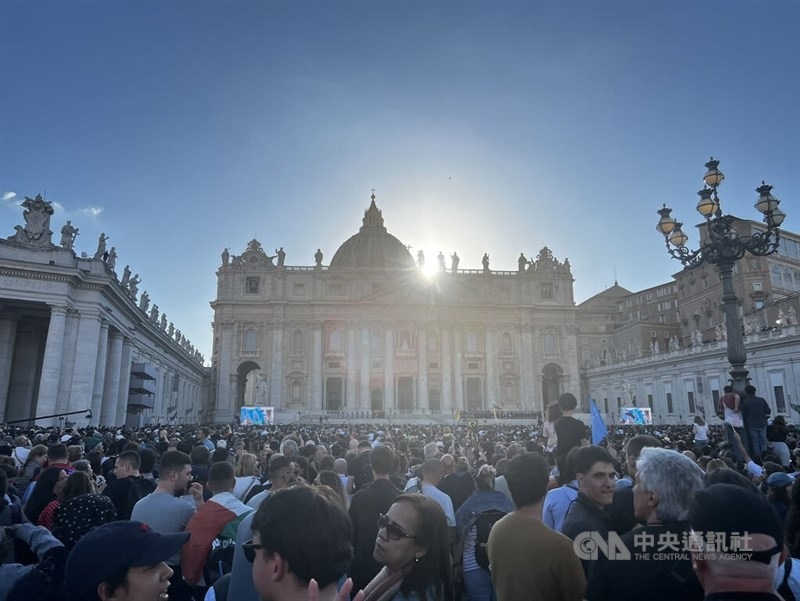Religious Unity and Global Humanitarian Issues Take Priority Over Cross-Strait Politics
In the wake of Pope Leo XIV’s election as the 267th pontiff of the Roman Catholic Church on May 8, political analysts and diplomatic observers have turned their attention to a longstanding question: Will the Vatican’s diplomatic stance toward Taiwan shift under the new leadership?
However, Taiwanese scholar and veteran Vatican observer Chiang Kuo-hsiung (江國雄) believes there is little cause for immediate concern. In an exclusive interview with CNA, Chiang emphasized that the Holy See’s primary agenda under Pope Leo XIV will be focused on promoting global religious unity, humanitarian outreach, and resolving international conflicts—not a rapid reassessment of China-Taiwan relations.
Pope Leo XIV: A Pontiff in the Shadow of Global Crises
While Pope Leo XIV assumes his position amid high expectations and scrutiny, Chiang notes that the Vatican does not operate on the same rapid-response timeline as political powers like the United States. “The Vatican typically does not take drastic actions like a U.S. president would—that’s not its style,” he said.
Instead, Pope Leo XIV’s initial priorities are likely to include:
- The humanitarian fallout from Russia’s war in Ukraine
- Escalating tensions and civilian crises in Gaza
- Ongoing religious and political strife in South Asia, particularly between India and Pakistan
Given this context, Chiang argues that Taiwan should align its diplomatic engagement with the Vatican’s global humanitarian mission, rather than lobby for reassurances amid geopolitical pressures from Beijing.
Taiwan’s Vatican Strategy: Patience and Purpose
Taiwan currently maintains formal diplomatic relations with just 12 countries, with the Holy See being its only ally in Europe. This makes the relationship uniquely important to Taiwan’s foreign policy strategy. But Chiang urges calm: “Beijing often tries to influence Holy See diplomacy, but there is no need for Taiwan to panic.”
Chiang, a former senior editor at Vatican Radio and longtime resident of Rome, has followed decades of Vatican diplomacy and stresses its consistency in prioritizing moral authority, spiritual leadership, and global justice over geopolitical allegiances.
Instead of viewing the new papacy through a political lens, Chiang advises Taiwan to collaborate more closely with the Vatican on shared goals such as healthcare, education, refugee support, and poverty alleviation. These efforts, he believes, will strengthen bilateral ties without the need for overt political gestures.
The China Factor: A Persistent Undercurrent
It’s no secret that Beijing continues to seek formal diplomatic ties with the Vatican, often using incentives such as religious accommodation and economic engagement. The 2018 Sino-Vatican provisional agreement on bishop appointments—renewed in 2022—demonstrates Beijing’s interest in expanding religious and political influence.
Yet the Holy See has maintained a cautious balance, refusing to sever ties with Taiwan despite ongoing pressure. This suggests that while Pope Leo XIV may be open to continued dialogue with China, he is unlikely to make any sudden or sweeping changes in diplomatic recognition.
What Should Taiwan Do Next?
Taiwan’s best path forward, according to Chiang, is one of quiet diplomacy, support for Vatican-led humanitarian initiatives, and mutual respect.
Taiwan has proven itself a consistent ally, contributing to causes championed by the Catholic Church and supporting global aid missions. “Taiwan should stay the course,” Chiang said, “and invest in what matters most to the Holy See: serving humanity.”
❓ FAQs
Will the Vatican cut ties with Taiwan under Pope Leo XIV?
Unlikely in the short term. The Vatican’s approach to diplomacy is slow, thoughtful, and rooted in humanitarian values rather than fast political shifts.
Why is Taiwan worried about Vatican-China relations?
Because the Holy See is Taiwan’s only European diplomatic ally. Beijing has been actively trying to court the Vatican for diplomatic recognition.
What are Pope Leo XIV’s priorities right now?
Global crises such as the Ukraine war, the Gaza conflict, and tensions in South Asia are expected to take precedence over Taiwan-China issues.
What can Taiwan do to maintain strong ties with the Vatican?
Support humanitarian and religious missions of the Vatican, avoid politicizing the relationship, and engage in meaningful collaboration on global welfare.
Has the Vatican ever recognized the People’s Republic of China?
Not officially. While the Vatican has had limited agreements with China (like the bishop appointment deal), it still recognizes Taiwan as a sovereign state.


